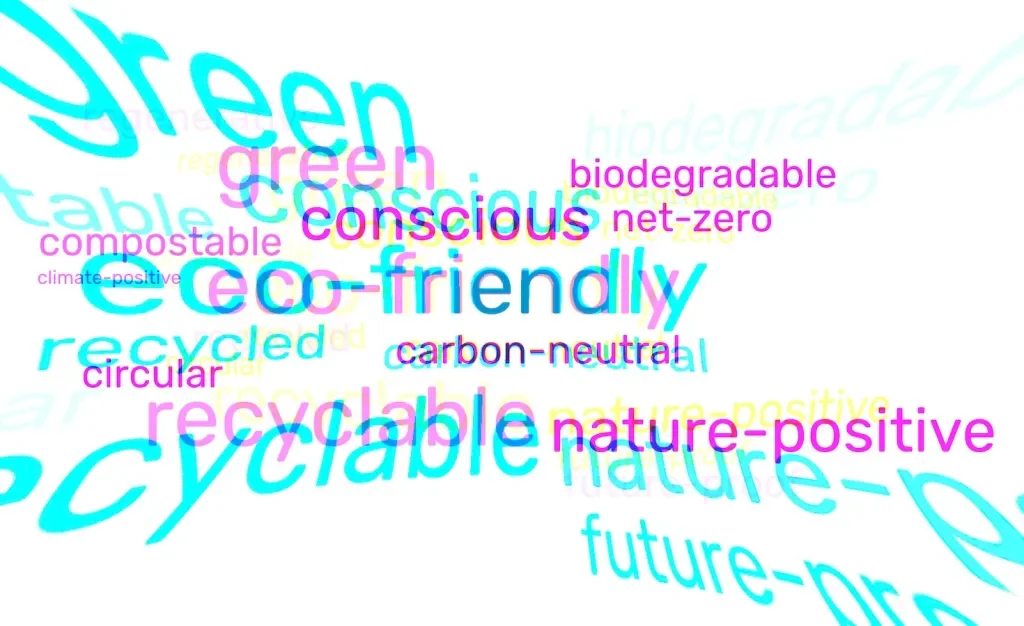“Sustainability” is becoming meaningless
Everyone these days, brands, influencers, and consumers alike, love to throw around the word sustainability. It’s become the go-to buzzword for looking conscious, ethical, and “on trend.” But honestly, most of the time it’s used as a convenient greenwashing tactic, a way to score points with consumers without doing any of the hard work required to actually reduce impact.
Brands are treating sustainability like a hall pass: a quick label they can slap onto products or campaigns to seem like they care, to seem like a place consumers want to shop at. Especially in the fashion industry.
Yet few offer proof, transparency, or even simple insight or reports on what they’re truly doing behind the scenes. With everyone using the word and so few supporting their statements, the term is losing its weight. It’s becoming overused. Redundant. Almost meaningless.
Sustainability deserves better than being just another marketing buzzword, often used in tandem with a slew of greenwashing terms.
As someone who genuinely values environmental responsibility—something that guides my choices in daily life, purchasing habits, and ecological footprint—it’s becoming increasingly difficult to express that belief in a way that feels authentic. That shows it’s something I am passionate about. The term has been so diluted that it no longer captures the depth of what it means to care about impact.
So how can I, how can we—as consumers, professionals, humans—communicate that sustainability matters when the word itself is becoming obsolete, used as casually among brands as simply claiming they “care about their consumers”?
Focus on actions, not labels. Be transparent.
Use quantifiable, measurable language: reference data, daily practices, and objectives you may have taken. Speak about what you value. Differentiate yourself. Share the processes behind your decisions.
It’s essential to talk about the values that lead to your sustainable behavior. Do you value longevity, sustainable labor practices, ethical sourcing? Do you have a commitment to create impact with as little harm as possible while still leaving room for innovation and growth?
Sustainability isn’t just a word. It’s a daily choice. It’s a lifestyle.
As much as the term is becoming obsolete, thrown around by everyone and diluted, it should also be the standard by now. Given the state of our climate, social and global environmental reality, sustainability shouldn’t be a tactic or a way to gain followers or positioning, but the expectation.
Ultimately, when it comes to expressing personal sentiment around sustainability, it’s about your language and your clarity. Be purposeful and specific about what your “sustainable” values actually are and articulate how you put them into practice. As simple as it sounds, precise language is now essential to avoid becoming part of the vague, overused conversation around sustainability. Prove you care!
And as consumers, it’s important to read beyond the hall pass. Look for statistics, proof, and initiatives that genuinely reflect a brand’s claims. Check their sourcing, practices, and impact reports (Patagonia’s report above is a perfect example of genuine transparency and commitment!). We have the power to push for transparency and make clarity a requirement, not just a positioning maneuver.



